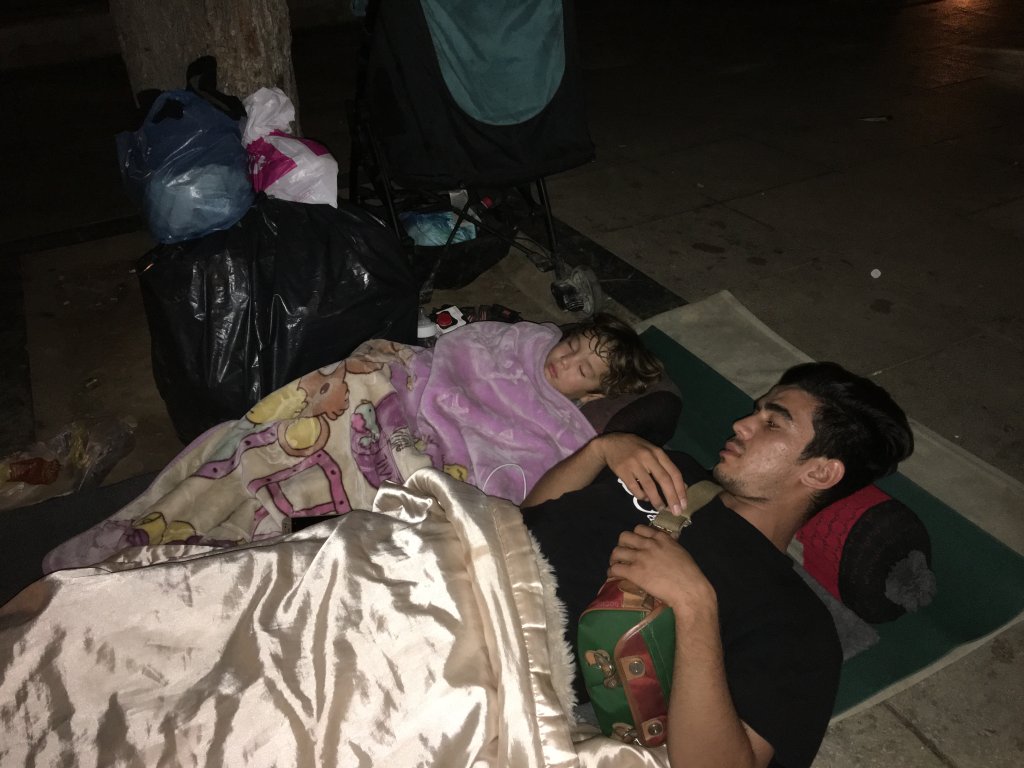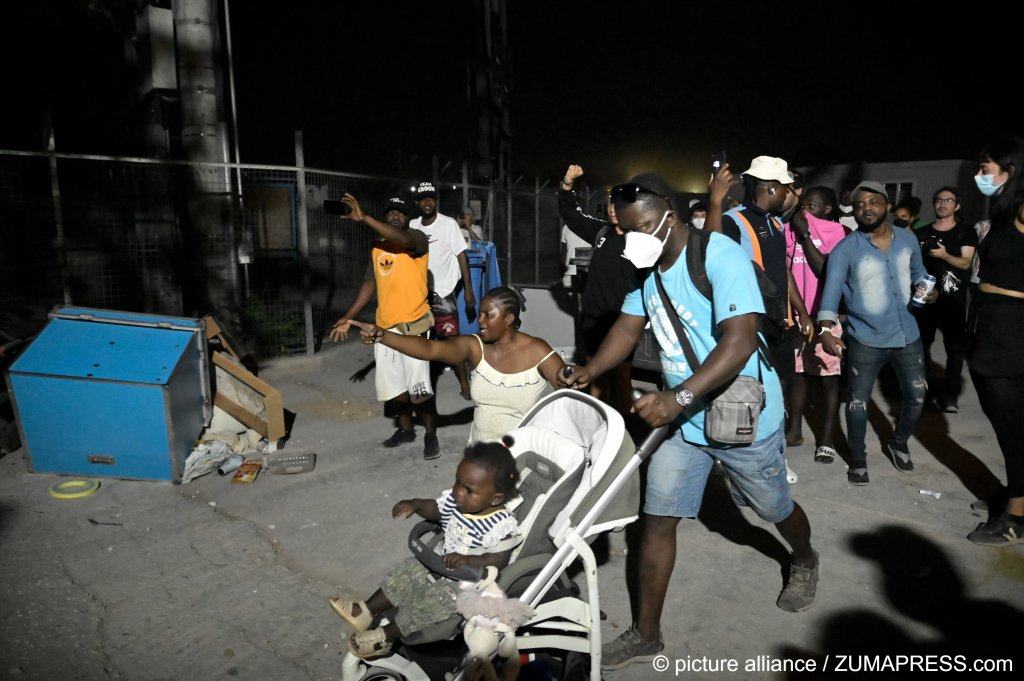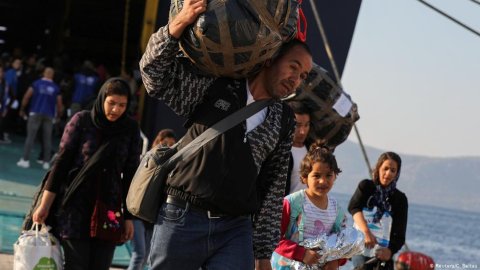Asylum seekers in Greece suffering food insecurity as government cuts welfare
Source: InfoMigrants: reliable and verified news for migrants – InfoMigrants
Failed asylum seekers as well as recognized refugees in Greece eventually lose all government benefits. As Greece is trying to make irregular immigration less attractive, those on the ground are fast running out of options.
Greece has gradually been reducing government benefits offered to asylum seekers and recognized refugees.
So far, asylum seekers were offered financial assistance of a few hundred euros per month, which however ends once an applicant is granted refugee status, meaning they then largely have to fend for themselves.
Certain aid programs for refugees remain, but in December, for example, the government in Athens ended a program, which was funded by the EU, to offer rented accommodation to recognized refugees.
Over the past seven years, tens of thousands of refugees got to benefit from the ESTIA program, which was first managed by the UN refugee agency, and in 2020 taken over by the Greek government.
“The programme has completed its mission,” former migration minister Notis Mitarachi said at the time of its termination. But is that necessarily a correct assessment of the situation?

Squeezed into a studio flat — with eight others
Fahima is one of people who was affected by the termination of the program. The Afghan woman in her twenties was among those who effectively were left out on the street by the move.
It took her and her mother several months to find any kind of alternative accommodation — ending up in a small studio flat which they have to share with eight other people, the news agency AFP reported.
Fahima’s case is unique but not rare: despite living in Greece for the past six years, she has had her official asylum application rejected — partly because it was lodged before the Taliban takeover of Afghanistan.
She is therefore unable to benefit from any state aid, effectively placing her outside the law. This is why she is not allowed to work either.
“I am in a terrible situation where I have no state aid and cannot find employment either,” she told AFP.
But Fahima is far from alone in this situation: the humanitarian aid group Intersos says that in the past 18 months, it has provided food to over 5,000 migrants and refugees in Greece. More than half of those dependant on their aid are minors.

Read more: Greece: Refugees, asylum seekers struggle to integrate
Migrant poverty driving crime
Matina Stamatiadou, the supervisor of Intersos’ ‘Food for All’ program, explains that its beneficiaries are refugees, rejected asylum seekers, undocumented migrants and migrants who may have jobs but receive “poverty wages.”
And there is a waiting list to be accepted by the program as well: In just one year, she said, the waiting list for these distributions has quadrupled — to more than 2,000 people. Priority is given to vulnerable people who find themselves in dire straits, such as single women with children or people with serious health problems.
Intersos Greece general director Apostolos Veizis estimates that in the capital Athens alone, about 15,000 refugees lack access to proper daily meals.
“When you are hungry, you cannot look for work, take care of your legal procedures or your health,” he told AFP, adding that this directly relates to the capital’s crime rate:
In this sort of situation, “to get money, you are also prepared to put yourself in danger, to do illegal activities, to borrow without being able to repay,” he said.

Read more: Germany puts ‘freeze’ on refugees with protection in Greece
Food insecurity keeping kids out of school
According to standard United Nations criteria, almost 60% of those who receive aid by the organization are in what accounts to severe food insecurity, as they reported having access to sufficient food only between one and three times a week.
This brings up serious health implications, especially for adolescents. Apostolos Veizis stresses that there are serious consequences for the physical and mental development of children, who suffer food insecurity.
“We hear terrible accounts of adolescent girls who don’t go to school when they have their period because the parents cannot afford them sanitary towels,” Veizis said.
Cynthia Efionandi, a 30-year-old immigrant from Niger said that her children sometimes “don’t go to school because they haven’t eaten and are too tired.”
Read more: Greece: Aid group warns of ‘hunger crisis’ in migrant camps
A diet of rice, lentils and flour
Other Nigerien people are also suffering under the low recognition rate in Greece.
33-year-old Deniz Yobo has managed to pick up enough rice, lentils, flour, honey and biscuits to get by for a month — but she doesn’t know what will happen next month.
The mother of two is raising her children alone, doing her best to provide them with whatever she can. However, working as a part-time cleaner, she earns less than 500 euros a month, with which she covers her 350-euro rent.
“Often, halfway through the month, I no longer have enough money to feed my sons,” she told AFP, highlighting that the soaring cost of living in Greece has meant that her meagre salary is practically wiped out the day she gets paid.
So each month, she joins dozens of migrant women and young children queueing for food donations, as they all feel like they have fallen through the cracks of Greece’s dwindling asylum support programs.
Matina Stamatiadou sees no short-term resolution to the problem.
“Greece still considers itself a transit country. However, many refugees have been living here for several years now and want to integrate,” she highlights.
“But the government has failed to put in place an effective policy for this purpose.”
Read more: How Europe’s housing crisis impacts migrants
With AFP
The original article: belongs to InfoMigrants: reliable and verified news for migrants – InfoMigrants .




